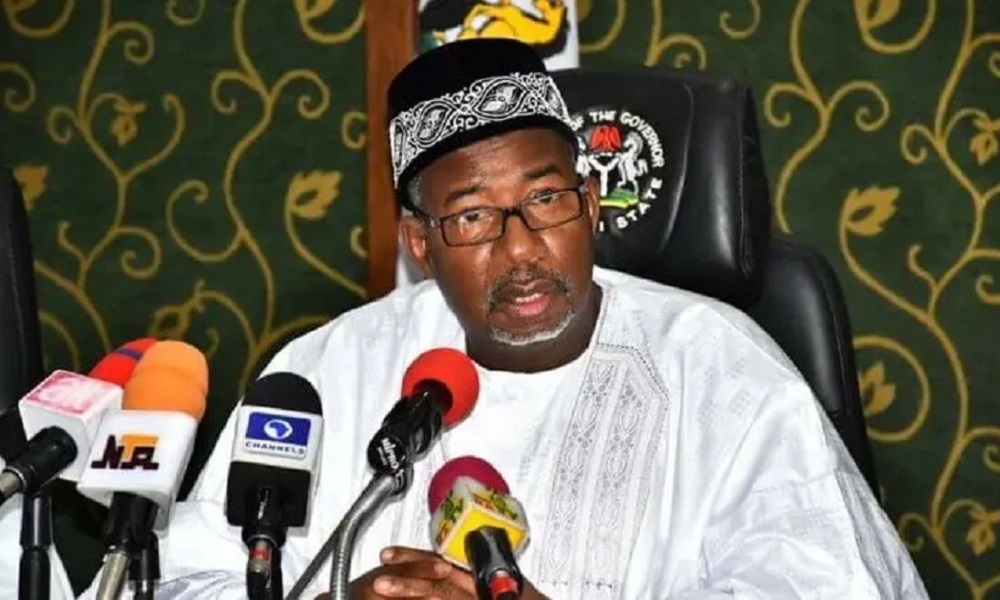News
CHEATERS: How DisCos Over-bill Customers By N105bn In 9 Months

The Nigerian Electricity Regulatory Commission, NERC, has imposed a N10.5 billion fine on electricity distribution companies, DisCos, for over billion customers without meters to the tune of 105.05 billion in the first nine months of 2023.
The Commission in separate Orders issued to the DisCos on Friday said the utilities were in breach of an Order it issued in 2020 on capping of electricity billed to unmetered customers by the DisCos.
A selected check on the orders showed that Abuja Electricity Distribution Company, AEDC, over-billed its customers without meters to the tune of N17.874 billion while Eko Distribution Company, EKEDC, over-billed its unmetered customers by N13.137 billion.
Port Harcourt Electricity Distribution Company, PHEDC, over-billed its customers without meter by N14.187 billion with Kaduna Electric over-billing its customers by N1.145 billion.
NERC ordered the DisCos to refund the cheated customers in full and to ensure compliance in the future. To deter future occurrence, it imposed a 10 percent fine on the utilities.
The Commission explained that “The public may recall that in 2020, the Commission issued the Order on Capping of Estimated Bills (Order No: NERC/197/2020) and subsequently issued monthly energy caps which aimed to align the estimated bills for unmetered customers with the measured consumption of metered customers on the same supply feeder.
“A review of the Electricity Distribution Companies billing of unmetered customers for 2023 has revealed non-compliance with the monthly energy caps issued by the Commission.
“In response to this and in a bid to safeguard unmetered customers from arbitrary billing by DisCos, the Commission, pursuant to Section 34(1)(d) of the Electricity Act 2023 (“EA 2023”), has issued the Order on Non-Compliance with Capping of Estimated Bills (Order No: NERC/2024/004-014) which stipulates the following: “Credit Adjustment to Customers: DisCos are to issue credit adjustments to all overbilled unmetered customers for the period January to September 2023 by the March 2024 billing cycle.
“Public Notice: DisCos have been directed to publish the list of credit adjustment beneficiaries in two national dailies and on their website no later than 31st March 2024.
“Regulatory Sanctions: The Commission shall deduct a sum of N10,505,286,072 from the annual allowed revenues of the eleven (11) DisCos during the next tariff review, to deter future non-compliance with the energy caps approved by the Commission”.
Specifically, for Eko DisCo, the Commission said: “To forestall further non-compliance, a deduction of N1,413,766,176 which is equivalent to 10% of the Naira value of the total over-billing for the period January – September 2023 shall be applied to EKEDC’s annual OpEx over a rolling 12-month period during the next tariff review.
“Notwithstanding the provisions of section (11B)(i), and pursuant to the provision of section 34(2)(f) of the EA 2023, the Commission may deduct a greater percentage of the total over-billing from EKEDC’s admin OPEX where a non-compliance with capping Orders persists”.
News
Parents of 9 kidnapped kids beg Bauchi gov for assistance

Parents of the nine kidnapped children in Miya village in Ganjuwa Local Government Area of Bauchi State have appealed to Governor Bala Mohammed to intervene and assist them in rescuing their wards.
The parents made the plea while speaking with journalists at the NUJ Press Centre in Bauchi on Wednesday.
The spokesman of the parents, Musa Kwana, who is the traditional ruler of the community stated that unless the governor and his wife Aisha Bala Mohammed intervene, they may not see their children again.
Kwana gave the names of the children abducted as Sangi Turaki, Cikawa Turaki, Danjuma Turaki, Yangawa Dogo Talangu, Bebi Bawa, Jumolo Dangaladima, Kangaya Kori, Jummai Adamu and Alti Shehu, all of Miya village in Ganjuwa LGA of Bauchi State.
The spokesman said, “Now that we have tried everything humanly possible for several years since the incident happened in 2014 and could not get a positive result, we want the governor and his wife to step in and wipe our tears. We want to see our children.”
News
Police arrest woman for allegedly trying to sell stolen 3-year-old boy in Abuja

The Federal Capital Territory (FCT) Police Command has arrested a woman for allegedly attempting to sell a 3-year-old boy she claimed to be her son for N1.5 million.
Police sources told security analyst, Zagazola Makama that the suspect, identified as Hana Yusuf of Kpaduma II Village, approached a resident, Isaac Tom, on March 18, 2025, requesting his help in finding a buyer for the child.
Tom, disturbed by the request, reported the matter to the Asokoro Police Division.
Acting swiftly, police operatives set up a sting operation, with ASP Promise Gandi posing as a potential buyer.
The suspect was lured to a meeting point, where she was arrested, and the child was safely rescued.
Preliminary investigations confirmed that the child, Yusuf Ibrahim, is the son of Mr. and Mrs. Mariam Ibrahim of Kpaduma II, Guzape.
The police have since reunited the boy with his parents while further investigations continue.
The suspect remains in custody and is undergoing interrogation.
Authorities say she will be charged in court upon completion of the investigation.
News
Who is advising you? – Nigerian lady criticizes women who discard their father’s name after marriage

A Nigerian lady, Ngozi, has criticized women who remove their father’s names after marriage.
“If in this era you marry, yank your papa name off and changed to ur husband’s name, nne iwu mgbada chi umu!!Who dey advise una sef?,” she wrote in a Facebook post on Thursday.
-

 News20 hours ago
News20 hours agoJUST-IN: Police Nab Niger Delta Congress President After Calls for Protest Against Emergency Rule
-

 News20 hours ago
News20 hours agoHold Tight To One Wife – Emir Advises Muslim Men
-

 News20 hours ago
News20 hours agoPastor Adeboye Cries Out Against Using His Fake AI-Generated Content to Scam People (PHOTO)
-

 News20 hours ago
News20 hours agoLanding cost of petrol jumps to N885 per litre
-

 News14 hours ago
News14 hours agoMinister kicks against shooting of NIS officer, vows tough action against Chinese firm
-

 News14 hours ago
News14 hours agoBenue AG orders immediate treatment of 10 year old boy bitten by a snake + Photos
-

 News14 hours ago
News14 hours agoForgive us, suspended dukes beg Oba of Benin
-

 News14 hours ago
News14 hours agoPresident Tinubu To Mark 73rd Birthday With Special Prayer At Abuja Mosque -Spokesman





